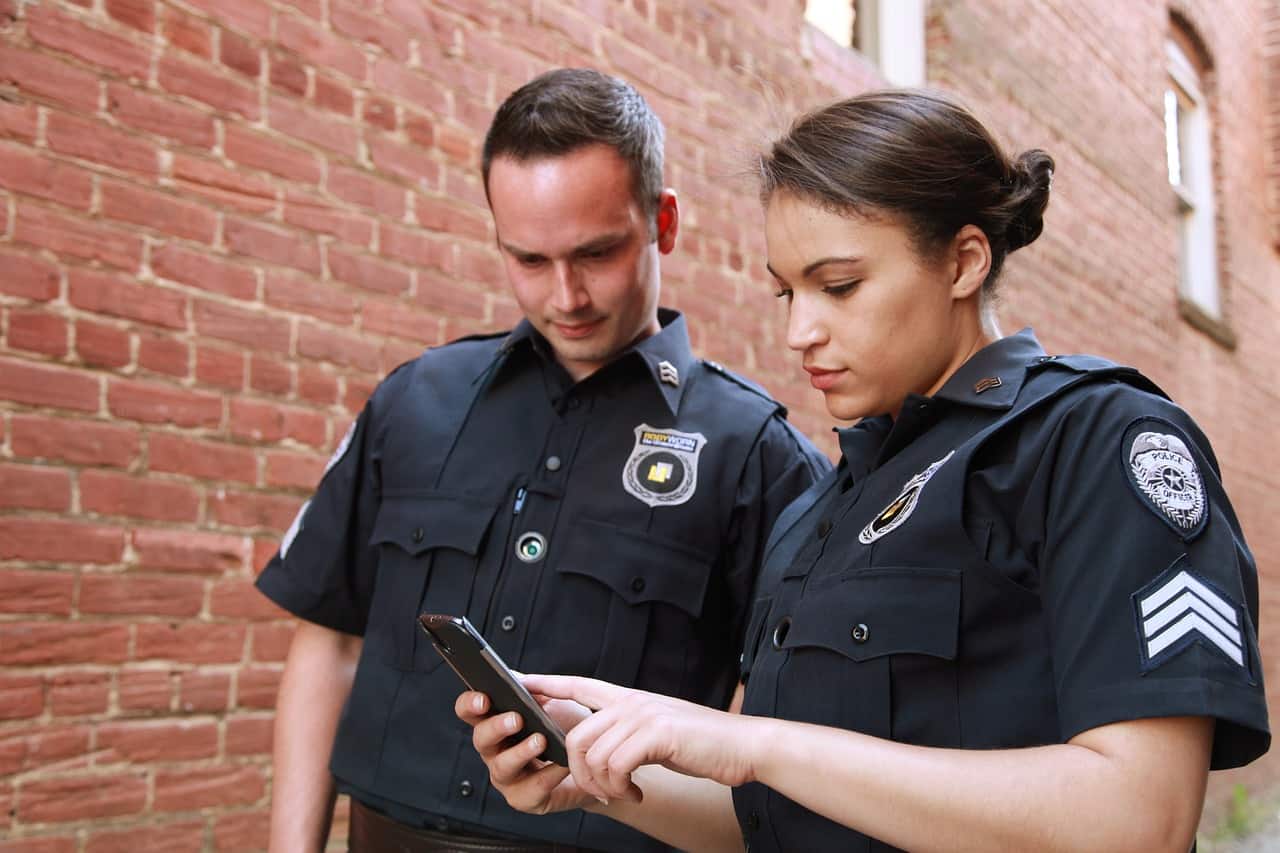Working as a security guard is not just about standing guard, it’s about being well-prepared and trained to handle a variety of situations professionally and efficiently.
In this article, we will explore the journey to becoming a security guard, from understanding their roles and responsibilities to gaining the necessary training and certifications.
1. Understanding the Role of a Security Guard

Becoming a security guard opens the door to a range of responsibilities, each requiring specific training to excel in the field. Here’s an in-depth look at some key roles and responsibilities:
- Surveillance: Security guards often serve as the eyes and ears of an organization, monitoring surveillance cameras, alarms, and access points. Specialized training in surveillance techniques and technologies equips them for this role.
- Patrolling: Regular patrols are essential for deterring potential threats. Security guard training includes techniques for effective patrolling, ensuring no area is left unmonitored.
- Customer Service: Providing assistance and information to visitors or customers is a crucial aspect of the role. Customer service training helps guards handle inquiries and requests professionally.
- Emergency Response: Security guards must be prepared to act swiftly during emergencies, including medical situations or fires. First aid and emergency response training are integral components.
- Reporting: Documenting incidents and maintaining detailed logs is a fundamental part of the job. Training includes report writing skills to ensure accuracy and clarity in documentation.
- Conflict Resolution: Conflicts can arise in any setting. Security guards undergo conflict resolution training to de-escalate tense situations and maintain a safe environment. Click here to view our article on conflict resolution.
- Detention: In situations involving criminal activities, security guards may need to detain individuals until law enforcement arrives. Proper training ensures they understand the legal aspects and techniques for safe detention.
2. Educational Requirements and Career Advancement
While a high school diploma or GED is often the minimum educational requirement to become a security guard, higher education can significantly advance one’s career in security services. Pursuing a degree in criminal justice, law enforcement, or a related field not only enhances your knowledge but also opens doors to more advanced positions.
Continuing education is equally important. Security professionals can attend workshops, seminars, and specialized training programs to stay updated with the latest security trends and technologies.
Continuing Education Opportunities for Security Guards:
- Crisis Management Workshops: Workshops focused on advanced crisis response techniques prepare security guards for high-stress situations. These workshops can be found at local community colleges or online.
- Advanced Surveillance Training: Staying updated with the latest surveillance technologies and techniques enhances a guard’s effectiveness in monitoring and reporting. Training institutions and private security companies often offer these courses.
- Legal and Ethical Seminars: Understanding the legal and ethical aspects of security work is critical. Seminars on this topic ensure guards remain compliant with laws and regulations. Many industry associations and universities conduct these seminars.
3. Security Guard Training Programs
To excel in the field, aspiring security guards should undergo comprehensive training programs that equip them with the necessary skills and knowledge. Here’s why these training programs are beneficial:
- ASIS International: ASIS offers a wide range of security management courses, including the Certified Protection Professional (CPP) program, which is highly respected in the industry. These programs provide security guards with in-depth knowledge and valuable certifications that boost their credibility.
- American Red Cross: The American Red Cross is renowned for its first aid and CPR training. Their security guard training programs include basic security techniques and emergency response training, providing essential skills for real-world situations.
4. Certification and Licensing
Certification is a crucial step in establishing one’s credibility and competence as a security guard. Certified guards often receive higher salaries due to their specialized knowledge and skills. Here are some examples of certifications that can lead to increased earning potential:
- Certified Security Guard (CSG): Offered by private security training academies, this certification demonstrates proficiency in basic security skills and is a valuable addition to a resume.
- Armed Security Guard Certification: Necessary for those who wish to carry firearms on duty, requirements for this certification vary by state. For instance, in California, armed security guards must complete the Power to Arrest (PTA) and Weapons of Mass Destruction (WMD) courses. Armed guards typically earn higher salaries due to the increased responsibilities and risks associated with their role.
- State-Specific Certifications: Many states have their own certification programs, such as the New York State Security Guard Certification. These certifications require background checks and fingerprinting, ensuring that certified guards meet strict criteria for employment.
5. Career Advancement Paths
Security guards have diverse career paths to explore, each offering unique opportunities for growth and specialization:
- Supervisory Roles: Experienced security guards can move into supervisory roles, overseeing teams of security personnel. These roles often come with increased responsibility and higher pay.
- Loss Prevention Specialists: Focusing on asset protection, loss prevention specialists work to prevent theft and minimize losses for businesses. They may work in retail, corporate, or industrial settings.
- Corporate Security: Guarding corporate assets and ensuring the safety of employees within a corporate environment is a rewarding path. Corporate security often involves more extensive training and may lead to executive protection roles.
- Specialized Security: Opportunities exist in specialized fields such as healthcare security, transportation security, or event security. Specialization requires additional training and certifications tailored to the specific industry.
- Government Security: Working for government agencies, including federal, state, and local authorities, offers a wide range of opportunities. These roles may involve protecting critical infrastructure, government facilities, or diplomatic missions.
Becoming a security guard is a journey that involves dedication, training, and ongoing education. By understanding the roles and responsibilities, pursuing relevant education and training, obtaining certifications, and exploring diverse career paths, aspiring security guards can embark on a rewarding and meaningful career in security services.

